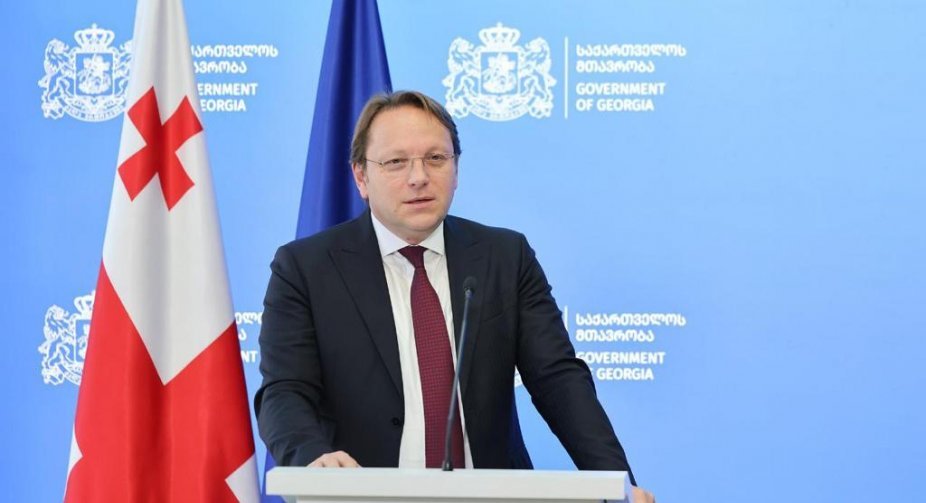European Commissioner for Neighbourhood and Enlargement, Olivér Várhelyi, on Thursday expressed his "sincere regret" that part of his phone conversation with Georgian Prime Minister Irakli Kobakhidze was "taken out of context."
Prime Minister Kobakhidze alleged he had received an "alarming threat" from an unidentified European Commissioner during a recent phone conversation concerning the contentious Foreign Influence Transparency Bill. He recounted, "the European Commissioner listed a number of measures that Western politicians can take after overcoming the veto on the transparency law, and while listing these measures, he mentioned - 'You see what happened to Fico and you should be very careful.'"
Várhelyi, as Commissioner responsible for Neighbourhood and Enlargement, stated he is in regular contact with government officials of his portfolio countries, emphasizing that "communication channels always have to be kept open for direct political exchanges."
"In the current political situation of Georgia, I have been investing major efforts in dissuading the Georgian political leadership from adopting the Law on Transparency of Foreign Influence, which can undermine Georgia's EU path," Várhelyi said. "Being fully aware of the very strong pro-EU sentiment of Georgian society, during my phone conversation I felt the need to call the Prime Minister’s attention to the importance of not further inflaming the already fragile situation by adopting this law, which could lead to further polarization and possible uncontrolled situations on the streets of Tbilisi. In this regard, the latest tragic event in Slovakia was made as an example and as a reference to where such high levels of polarization can lead in a society, even in Europe."
He added, "Once again, I regret that one part of my phone call was not just fully taken out of context but was also presented to the public in a way that could give rise to a complete misinterpretation of the originally intended aim of my phone call. I am still urging the Georgian authorities not to adopt this law. I ask this also as a well-known and so far respected friend of Georgia. I continue to support Georgians working towards a European future."






